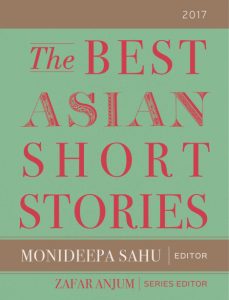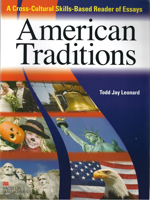Jennifer Hammer to speak at Japan Writers Conference
Posted by Tom Baker.
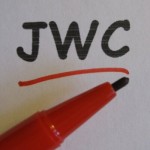 JET alum Jennifer Hammer will be among nearly 50 published writers making presentations at this year’s Japan Writers Conference (Oct. 12-13 in Tokyo). Here’s the official description of her talk:
JET alum Jennifer Hammer will be among nearly 50 published writers making presentations at this year’s Japan Writers Conference (Oct. 12-13 in Tokyo). Here’s the official description of her talk:
“NaNoWriMo: What Are These Syllables and Why Do Writers Care?”
This lecture will focus on what exactly NaNoWriMo is, the pros and cons of writing 50,000 words in thirty days, and how writers can benefit from this online (and real life) community during the official November event, in April and July for “Camp NaNo,” and with writers of varying levels from around the world. Why should a writer care about these four syllables? Because NaNo is a great resource for writers, can be adapted to schools (and/or clubs), and is a way to make friends for life (as well as connect with the 5AM writing club, whichever time zone you’re in).
Jennifer Hammer is the Tokyo Municipal Leader (ML) for NaNoWriMo and a four-year NaNo winner. She writes whatever pretty idea catches her attention, all the way from super hero romance (White Knight) to creepy-crawly horror (JA Hammer) to fantasy video games (Coffee Quills).
For more details, visit http://www.japanwritersconference.org/
Todd Jay Leonard to speak at Japan Writers Conference
Posted by Tom Baker.
JET alum Todd Jay Leonard will be among nearly 50 published writers making presentations at this year’s Japan Writers Conference (Oct. 12-13 in Tokyo). Here’s the official description of his talk:
“Publishing in the EFL Market in Japan: Four Perspectives on How to Make your Proposal Count”
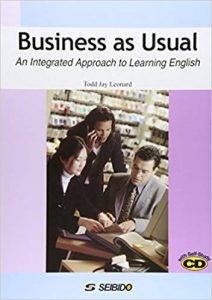 Short lecture with Q & A
Short lecture with Q & A
This presentation will outline the current publishing market in Japan for EFL/ESL textbooks by reviewing the various points of views of the publishing industry. The presenter has published extensively within the ESL/EFL field in Japan and will offer helpful advice to budding authors who wish to pursue projects geared to Japan’s domestic market. What are publishers looking for in the current market? What appeals to editors who ultimately decide? What are the salespeople on the front lines hearing from their market? What must an author do in order to get his/her book published? This presentation focuses on these very questions.
Todd Jay Leonard has been actively involved in book publishing for thirty years and has published twenty books. He lives, writes, and teaches on the southern island of Kyushu, where he is a university professor at University of Teacher Education Fukuoka. He has published extensively in academic journals, magazines, and newspapers on cross-cultural, historical, and Teaching English as a Foreign Language (TEFL) themes.
For more details, visit http://www.japanwritersconference.org/
Suzanne Kamata to reveal “The Truth about Writing Contests”
Posted by Tom Baker
The Japan Writers Conference, a free annual event that invariably attracts at least a few JETs, will be held at Otaru University of Commerce on Oct. 13 and 14. One of the JETs giving presentations this year will be Suzanne Kamata, who will be giving two of the 36 presentations scheduled for the big weekend. One of them was described in a previous JETwit post. Here’s the official description of the other:
“The Truth about Writing Contests”
Short lecture with Q & A
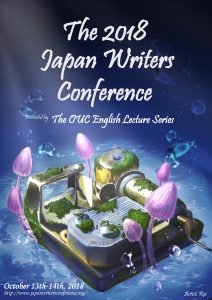 I will describe various kinds of writing contests, the pros and cons of entering said contests, and give advice on how to improve an entrant’s chances of winning.
I will describe various kinds of writing contests, the pros and cons of entering said contests, and give advice on how to improve an entrant’s chances of winning.
There are many contests for writers. Some may think that it’s not worth the time or the cost of the entrance fees. After all, many contests get hundreds of submissions, and judging is often somewhat subjective – every reader has different likes and dislikes. However, thanks to winning or placing in writing competitions, I have received plane tickets to Paris, Sydney, and Columbia, South Carolina (from my home in Japan). I’ve also been awarded cash, medals, trophies, and plaques and shiny prize stickers for my books, not to mention bragging rights and prestige. A contest win can also be an excuse for a burst of publicity. Contests may lead to recognition, getting an agent or publisher, and book sales. So how do you decide which contests to enter? How do you win? In this session I will share my expertise as a frequent contest entrant, sometime winner, and occasional judge.
Suzanne Kamata has won many awards for her writing including a grant from SCBWI for her forthcoming novel tentatively titled Indigo Girl (GemmaMedia 2018), a grant from the Sustainable Arts Foundation for her as-yet-unpublished mother/daughter travel memoir Squeaky Wheels, the Paris Book Festival Grand Prize for Gadget Girl: The Art of Being Invisible (GemmaMedia 2013), and an IPPY Silver Medal for her most recently published novel The Mermaids of Lake Michigan (Wyatt-Mackenzie Publishing 2017).
Tom Baker to discuss book reviewing at Japan Writers Conference
Posted by Tom Baker
The Japan Writers Conference, a free annual event that invariably attracts at least a few JETs, will be held at Otaru University of Commerce on Oct. 13 and 14. One of the JETs giving presentations this year will be Tom Baker (who wrote this post, along with a recent Japan News article previewing the event). Here’s the official description of his presentation:
 Anatomy of a Book Review
Anatomy of a Book Review
Short lecture with Q&A
“Anatomy of a Book Review” will explain how a book review is structured and what elements it should include. The key is to not merely indulge in one’s own reaction to a book, but to focus on being an informative and trustworthy guide for other readers.
A book review is like a book in miniature. It must grab the reader’s attention at the beginning, hold their interest through the middle, and leave them feeling satisfied to have spent their time on it by the end. But what goes into each of those parts and how do you put them together?
“Anatomy of a Book Review” will pin several reviews to the dissecting table to look at what parts they include and what function those parts serve. Vital organs include a catchy lead, facts about the author, and at least a sketch of the context in which the book appears.
Reviews of fiction and nonfiction will be compared. For any type of book, reviewers of course want to express their opinions. This presentation will focus on doing so in a way that fulfills the reviewer’s mission to be a concretely helpful guide for other readers.
Tom Baker has written and published about 300 book reviews over the past 20 years. He edited the Books page of The Daily Yomiuri, which is now The Japan News, where he edits the Bound to Please column. He was the ACCJ Journal’s book columnist for two years.
Suzanne Kamata to introduce “Best Asian Short Stories” at Japan Writers Conference
Posted by Tom Baker
The Japan Writers Conference, a free annual event that invariably attracts at least a few JETs, will be held at Otaru University of Commerce on Oct. 13 and 14. One of the JETs giving presentations this year will be Suzanne Kamata, whose story “Monchan” appears in the “The Best Asian Short Stories 2017” anthology. Suzanne will be giving two presentations. Here’s the official description of one of them:
Kitaab Publisher Zafar Anjum and contributor Suzanne Kamata will discuss The Best Asian Short Stories 2017 anthology. Anjum will also talk about other anthologies in the works and publishing opportunities for Japan-based writers and translators in Singapore.
Zafar Anjum, who heads the independent Singapore publishing house Kitaab International, and contributor Suzanne Kamata, will introduce The Best Asian Short Stories 2017 anthology. In addition to the anthology series, Kitaab has published novels, short story collections and stories for children. Anjum will also discuss his vision for Kitaab and publishing opportunities for Japan-based writers and translators. There will be a question and answer period.
Zafar Anjum is a writer, publisher, and filmmaker who lives and works in Singapore. His books include Kafka in Ayodhya and Other Short Stories (Kitaab International, 2015), Iqbal: The Life of a Poet Philosopher and Politician (Random House India, 2014), and The Singapore Decalogue (Red Wheelbarrow, 2012). He is the founder-editor of Kitaab, an online journal and publishing company that promotes Asian writing in English.
Suzanne Kamata is the author or editor of ten published books including, most recently Screaming Divas (Simon Pulse, 2014), The Mermaids of Lake Michigan (Wyatt-Mackenzie Publishing, 2017) and A Girls’ Guide to the Islands (Gemma Open Door, 2017). Her story “Mon-chan” was selected for inclusion in The Best Asian Short Stories 2017 anthology. She is an Associate Professor at Naruto College of Education.
Japan Writers Conference seeks presenters
Posted by Tom Baker
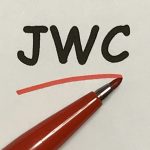 The 12th annual Japan Writer’s Conference will be held this year in Hokkaido, a new location for the event. The organizers are now seeking writers to give presentations on the weekend of Oct. 13-14 at Otaru University of Commerce in Otaru, Hokkaido. If you are a writer and would like to participate, contact details appear at the bottom of this post.
The 12th annual Japan Writer’s Conference will be held this year in Hokkaido, a new location for the event. The organizers are now seeking writers to give presentations on the weekend of Oct. 13-14 at Otaru University of Commerce in Otaru, Hokkaido. If you are a writer and would like to participate, contact details appear at the bottom of this post.
Each year, the Japan Writers Conference attracts English-language writers in a variety of genres and fields to share ideas on the art, craft and business of writing. And each year, a significant number of past and present JETs take part. These have included anthologist Suzanne Kamata, textbook author Todd Jay Leonard, travel writer Victoria Vlisides, short story writer Claire Dawn-Marie Gittens, novelists Benjamin Martin, Percival Constantine and Holly Thompson (the last of whom came to Japan in connection with the pre-JET MEF program), and journalists Elaine Lies and Tom Baker (the latter of whom wrote this post).
Past presenters have also included Australian poet David Gibley, “Slumdog Millionaire” novelist Vikas Swarup, “Cash Crash Jubilee” novelist Eli K.P. William, young-adult author Margi Preus, horror author Thersa Matsuura, and memoirist Leza Lowitz. The 2017 edition of “The Best American Mystery Stories,” edited by John Sandford, features a story by Karen McGee, who hosted the 2017 event in Tokyo. The host of this year’s event will be travel writer and textbook author Shawn Clankie.
Representatives of literary journals such as The Font and Cha have participated in past years, as have representatives of publishers including Fine Line Press and Isobar Press.
Run entirely by volunteers, the Japan Writers Conference is a free event open to all. Details on this year’s event can be found at http://www.japanwritersconference.org.
Writers interested in making a presentation at the 2018 conference are asked to contact organizer John Gribble at gribblej@gol.com. The deadline for presentation proposals is June 1.
2017 Japan Writers Conference coming up
Posted by Tom Baker (Chiba, 1989-91).
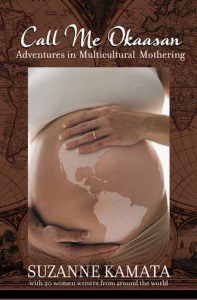 The Japan Writers Conference is a free annual event for English-language writers, held in a different part of Japan each year. In 2017, it will take place in Tokyo at the Ekoda Campus of Nihon University College of Art on Oct. 8-9, the last two days of a Japanese holiday weekend.
The Japan Writers Conference is a free annual event for English-language writers, held in a different part of Japan each year. In 2017, it will take place in Tokyo at the Ekoda Campus of Nihon University College of Art on Oct. 8-9, the last two days of a Japanese holiday weekend.
There will be will be about 30 presentations by published writers of fiction, poetry, memoir, travel writing and more. Several of those writers are former JETs.
JET alumnae Susan Laura Sullivan and Suzanne Kamata, for example, will give a joint presentation on editing anthologies. Sullivan is the editor of the forthcoming anthology “Women of a Certain Age,” while Kamata’s published anthologies include “Call Me Okaa-san” and “The Broken Bridge.”
Kamata will also give a presentation together with Ann Tashi Slater on creative nonfiction.
JET alum and textbook author Todd Jay Leonard, whose many titles include “American Traditions,” will give a lecture on “The Ever-Changing Publishing Industry,” in which he will discuss traditional versus print-on-demand publishing, followed by a Q&A session.
Poet and novelist Holly Thompson, who first came to Japan in connection with the pre-JET MEF program, will present “Writing Picture Books: Nonfiction Opportunities.” Her published works include “The Wakame Gatherers.”
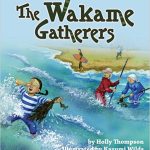 For details on those and the other presentations, visit www.japanwritersconference.org or follow @JapanWritersCon on Twitter.
For details on those and the other presentations, visit www.japanwritersconference.org or follow @JapanWritersCon on Twitter.
The Japan Writers Conference, now in its 11th year, is completely volunteer-run, and admission is free.
JET alums at Japan Writers Conference in Tokyo
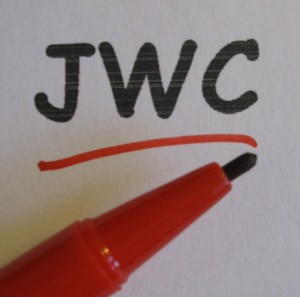 The 4th annual Japan Writers Conference will be held Oct. 10-11 in Tokyo with 30 writers giving 50-minute presentations about the artistic and business sides of their respective fields, which inlcude fiction, poetry, journalism and even EFL textbook writing. At least four of the presenters are former JETs.
The 4th annual Japan Writers Conference will be held Oct. 10-11 in Tokyo with 30 writers giving 50-minute presentations about the artistic and business sides of their respective fields, which inlcude fiction, poetry, journalism and even EFL textbook writing. At least four of the presenters are former JETs.
The venue is the Ekoda Campus of Nihon University College of Art. You can find full details by visiting http://www.japanwritersconference.org/or following the event on Twitter via http://twitter.com/JapanWritersCon
Here are some slightly shortened versions of the official descriptions of presentations to be made by JET alums:
DWAYNE LIVELY (Niigata-ken, 1996-99) “My Freeware Life.”
The lecture focuses on my experiments with various freeware writing programs, some of which promise to help improve the writing process. The first part of the lecture introduces a number of freeware writing programs that have been suggested by and/or designed by fellow writers. I will explain the results of my experiments with each program and will demonstrate how easy, or not, they are to use, how they changed my writing process and whether or not I intend to keep using them. Next, I will describe what happened when I attempted to follow a handful of “how to write a novel” plans offered free online. Finally, I will introduce the moral if the lecture, including what I learned and what I managed to accomplish during all the experiments.
Dwayne Lively’s fiction has appeared in Twister, Kansas Quarterly, and The MacGuffin. His non-fiction and reviews have appeared in Transitions Abroad, Literary Magazine Review and online at Notebookism.com. He has been a writer, teacher and editor for the better part of 20 years and worked and taught in Japan, the USA and Albania. In his dwindling free time he’s been finishing up a novel and, on occasion, writing the online journal The Crazy Japan Times ( http://www.crazyjapan.com).
SUZANNE KAMATA (Tokushima-ken, 1988-90): “Marketing for Beginners.”
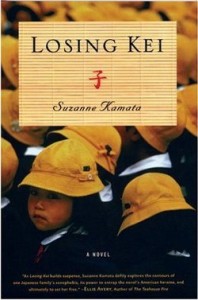 Getting your book into print is the easy part. Publishing it – making your work known to the public – takes a bit more effort. These days, writers are often expected to submit a marketing plan along with manuscripts, and most publishers expect writers to take an active role in marketing. So how do you market a book if you’re living in rural Japan, far from your target audience? Suzanne Kamata, author of five books with meagre advertising budgets, will suggest some easy, cheap, and not so obvious ways for expats to spread the word about their books.
Getting your book into print is the easy part. Publishing it – making your work known to the public – takes a bit more effort. These days, writers are often expected to submit a marketing plan along with manuscripts, and most publishers expect writers to take an active role in marketing. So how do you market a book if you’re living in rural Japan, far from your target audience? Suzanne Kamata, author of five books with meagre advertising budgets, will suggest some easy, cheap, and not so obvious ways for expats to spread the word about their books.
Suzanne Kamata again: “Kickstart Your Creativity”
Suzanne Kamata will lead participants in writing exercises meant to warm up the writer and/or kickstart creativity when the muse is absent. Bring a notebook and a writing implement.
Suzanne Kamata is the author of the novel Losing Kei (Leapfrog Press, 2008) and editor of three anthologies – Love You to Pieces: Creative Writers on Raising a Child with Special Needs (Beacon Press, May 2008) The Broken Bridge: Fiction from Expatriates in Literary Japan (Stone Bridge Press, 1997), and Call Me Okaasan: Adventures in Multicultural Mothering (Wyatt-Mackenzie Publishing, 2009). She also serves as fiction editor of the popular on-line journal literarymama.com from Tokushima, Japan, where she lives with her family.
TODD JAY LEONARD (1989-92): “So you want to publish an EFL textbook?–Four Points of View to Consider when Writing a Proposal–The Myths and Realities of EFL Publishing in Japan.”
Most likely, every language teacher in Japan has (at some point during his/her tenure) contemplated writing a textbook to fill a void in the market…in that constant search for the perfect, all encompassing textbook. What are publishers looking for in the current market? What appeals to editors who ultimately decide which titles go to production and which ones do not? What are the salespeople on the front lines hearing from their market base? What must an author do in order to get his/her book published? This presentation focuses on these very questions, offering inside insights from all the various points of view that must be considered when writing a proposal to publish a textbook–the publisher, the editor, the salesperson, and the author.
Todd Jay Leonard has been actively involved in book publishing for twenty years and has published twenty books. He lives, writes, and teaches on the southern island of Kyushu, where he is a university professor at Fukuoka University of Education. He has published extensively in academic journals, magazines and newspapers on cross-cultural, historical, and Teaching English as a Foreign Language (TEFL) themes.
TOM BAKER (Chiba-ken, 1989-91), “Interviewing Creative Subjects: Actors, Authors, Artists and Auteurs.”
Interviewing a creative subject requires thorough preparation to elicit original and interesting quotes. My talk will explain how to do the research, write the questions and conduct the interview. It will briefly touch on turning quotes into a story. A well-prepared interviewer will be familiar with the subject’s previous interviews, online self-expression and body of work. The interviewer will look for themes and connections in the work to ask probing questions about its meaning. The interviewer will prepare questions ranging from basic to technical to off-the-wall, but will use the list only as a guideline to the conversation. The interviewer will tolerate digressions (within reason) and allow thoughtful silences to bear fruit. The interviewer will look for local angles and connections to current events.
Tom Baker has been a staff writer for The Daily Yomiuri since 2001, and has interviewed Sylvester Stallone, Liv Tyler, Marlon Wayans, John Woo, Nicholas Sparks, Barry Eisler, Brian K. Vaughan, Michael Sowa and many others. He is a coauthor of Tokyo Chic and The Sushi Lover’s Cookbook.

